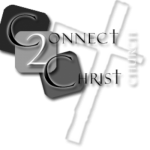January 31, 2022
There is so much that we can learn from today’s passage: “The Widow at Zarephath”. Before we read it, let’s recall what led Elijah to this moment and the differences that surround him and the widow. After we read it, let’s find Jesus in both of them.
Our passage is part of the introduction of the prophet, Elijah. At this point, we know that the nation’s economic collapse is a result of a severe drought that devastated crops and destroyed the population. In today’s verses we see how God is feeding Elijah, and we saw that in 17:1-7, and we see it again in 19:5-9. So, despite the worldly hunger, God is physically feeding Elijah because he spiritually belongs to God.
Differences – Elijah is an Israelite and God sends him to a Gentile. He is a refugee, and she is in her home country. He is a man, and she is a female widow. He has a name, and she is nameless. He has been fed (by ravens), and she and her son are preparing to die of starvation. He is called by his God and obeys, and she hears from his God and follows the instruction.
1 Kings 17:8-16 NLT
The Widow at Zarephath
8 Then the Lord said to Elijah, 9 “Go and live in the village of Zarephath, near the city of Sidon. I have instructed a widow there to feed you.”
10 So he went to Zarephath. As he arrived at the gates of the village, he saw a widow gathering sticks, and he asked her, “Would you please bring me a little water in a cup?” 11 As she was going to get it, he called to her, “Bring me a bite of bread, too.”
12 But she said, “I swear by the Lord your God that I don’t have a single piece of bread in the house. And I have only a handful of flour left in the jar and a little cooking oil in the bottom of the jug. I was just gathering a few sticks to cook this last meal, and then my son and I will die.”
13 But Elijah said to her, “Don’t be afraid! Go ahead and do just what you’ve said, but make a little bread for me first. Then use what’s left to prepare a meal for yourself and your son. 14 For this is what the Lord, the God of Israel, says: There will always be flour and olive oil left in your containers until the time when the Lord sends rain and the crops grow again!”
15 So she did as Elijah said, and she and Elijah and her family continued to eat for many days. 16 There was always enough flour and olive oil left in the containers, just as the Lord had promised through Elijah.
Jesus in Elijah – Elijah exemplifies Jesus in how he obeys the Lord’s commands, without question, and regardless of how crazy the circumstances might seem. He knows that a widow is a vulnerable and unlikely person to ask for food from, and she confirms in verse 12 that she only has one meal left before she and her son will die. But like Jesus, Elijah comforts her and he reassures her too not be afraid. In verse 14, Elijah’s instructions to her on how to prepare the bread come directly from the “God of Israel”, just as Jesus Himself taught us in Matthew 26:26 how we receive Him, the Bread of Life.
Jesus in the Widow – She feeds Elijah, just as Jesus feeds you and me. In the most extreme circumstance, where she and her own son are about to die, she heard the voice of “your God” and she followed the instructions. Elijah is a man, a refugee, and a stranger who is telling her what to do, and she followed the instructions. Would you and I do the same? As a result of her humble and selfless actions (just like Jesus), she and her son are saved (because Jesus saves) and they are blessed beyond measure.
Prayer: Jesus, Thank You for being the Bread of Life. I need Your nourishment each day. Help me, Lord, to be more like the widow. Help me to feed people, and to bring You to the unlikely. Build me to be more like Elijah. I want to constantly be obeying You, and I want to bring Your comfort and reassurance to others. I ask all of this in Your Precious and Holy Name, Jesus. Amen.
Written by: Jennifer Auer, Pastor Mary Haley’s Assistant
